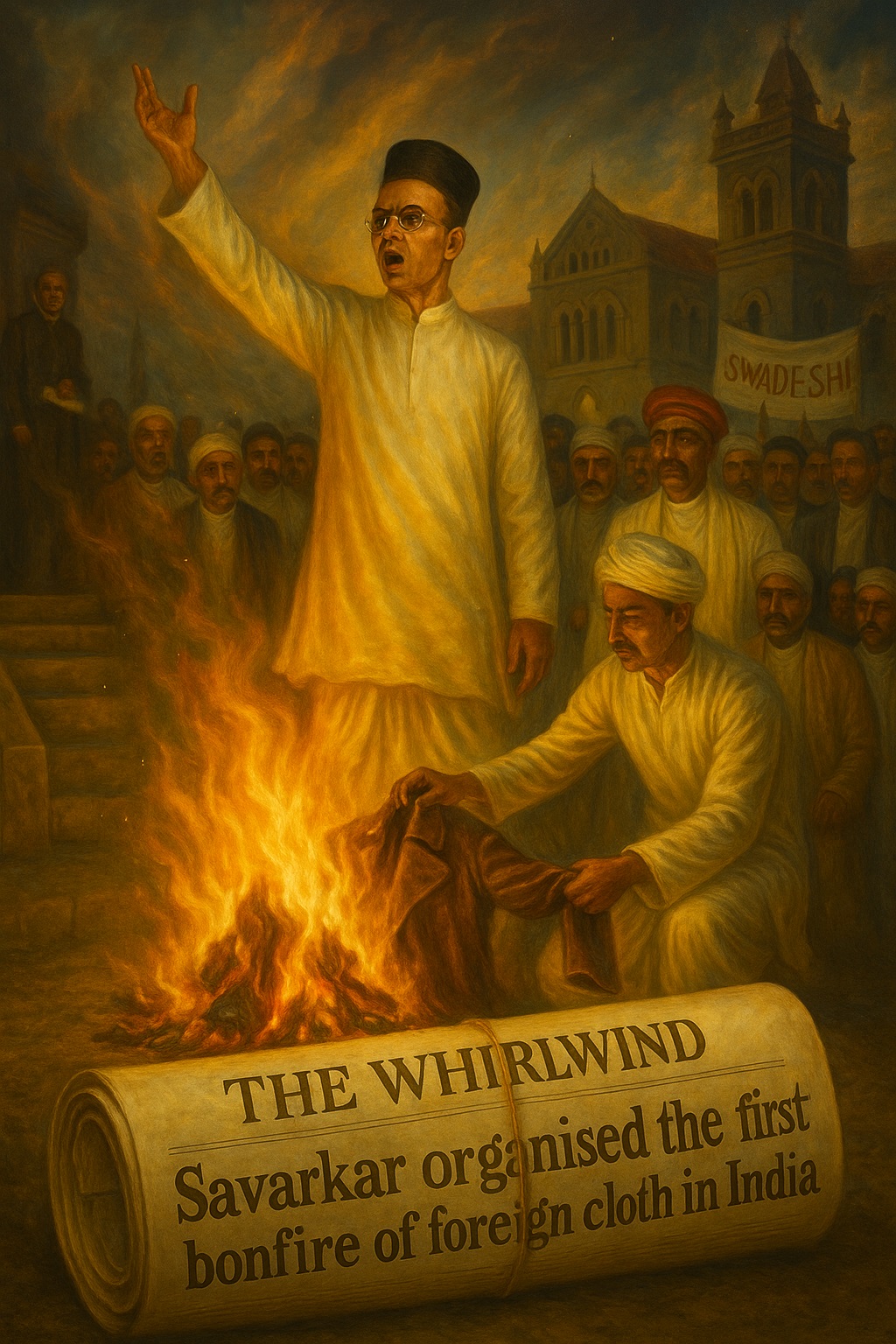In 1905, being in his early twenties, Vinayak Damodar (Veer) Savarkar emerged as a fiery student leader in Poona, galvanizing youth against British imperialism. A staunch proponent of Swadeshi, Savarkar saw the boycott of foreign goods as the moral counterpart to the political opposition to the Partition of Bengal by Viceroy Lord Curzon planned to come into effect on 6 October. On 1 October, representing students at a public meeting, he passionately urged Indians to burn foreign clothes and embrace Indian-made products. His stirring oratory won immediate support. Despite suggestions from N.C. Kelkar to donate the clothes instead, Savarkar insisted on the symbolic impact of a public bonfire.
Mobilizing his network of followers, he collected cartloads of British goods. Women’s and Brahmin groups held parallel protests, boycotting foreign household items. On Dussehra, 7 October 1905, a grand procession led by students, Tilak, Paranjpe, and others moved through Poona to Lakdi Pul, where the bonfire blazed. Savarkar’s speech moved many; Paranjpe, in a dramatic gesture, checked a foreign coat’s empty pockets before tossing it into the fire, symbolizing British exploitation.
Principal R.P. Paranjpe of Fergusson College fined Savarkar ₹10 and expelled him from the hostel. This marked him as the first Indian student rusticated from a British-supported institution for political activism—and the first to organize a bonfire of foreign cloth. Undeterred, he paid the fine himself and donated the surplus raised by supporters to the nationalist cause. His actions not only ignited revolutionary sentiments beyond Maharashtra and Bengal but also left a deep moral imprint on the Indian freedom struggle, inspiring generations to come including apparently Mahatma Gandhi too.
Sources:
GODBOLE, Vasudev Shankar. 2004. Rationalism of Veer Savarkar. Itihas Patrika Prashan: Thane/Mumbai.
KEER, Dhananjay. 1988. Veer Savarkar. Third Edition. (Second Edition: 1966). Popular Prakashan: Bombay (Mumbai).
SAMPATH, Vikram. 2019. Savarkar (Part 1). Echoes from a forgotten past. 1883-1924. Penguin Random House India: Gurgaon.


Leave a Reply